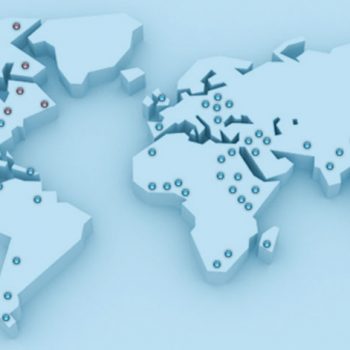Gender equity, education and the SDGs
As the Global Partnership for Education (GPE) tells us, significant global progress has been made over the past 15 years (the period of the Millennium Development Goals) towards achieving gender parity in education in terms of increasing girls’ enrolment in, and completion of, primary school.
However, important gender gaps still remain. These include stereotyping and sexism in curricula, textbooks, and teacher professional learning and classroom practices; and school-related gender-based violence. The GPE also reminds us that, “in addition, critical gender issues in children’s lives, including child marriage, early pregnancy, child labor, poor nutrition and health status and negative social beliefs and practices, continue to have severe negative impacts on the educational opportunities and outcomes of girls and boys.”
www.globalpartnership.org/content/gender-equality-policy-and-strategy-2016-2020
So-called low-fee private schools also pose a threat to gender equity in several developing countries. According to Prachi Srivastava, Associate Professor at the School of International Development and Global Studies at the University of Ottawa, “Given the full costs of low-fee private schools, most disadvantaged households have to make difficult decisions about whom to send. This choice most often favours boys and aggravates gender inequities. Children from ethnic minority, lower-caste groups, and the bottom-20%-earning households have limited access.”
https://www.theguardian.com/global-development-professionals-network/2015/aug/12/low-fee-private-schools-poverty-development-economist
Not surprisingly, the relationship between education and gender equity is one which is mutually reinforcing – that is, education is important to achieving gender equity, gender equity is important to achieving education for all, and they’re both integral to the achievement of the other Sustainable Development Goals (SDGs) including the reduction of inequality within and among nations. The GPE states in its Gender Equality Policy and Strategy 2016–2020 that,
As the global community has become increasingly aware, education plays a key role in realizing progress toward gender equality, empowering girls and boys with foundational skills, knowledge and skills for work, leadership capacities, increased livelihood opportunities, influence and autonomy. At the same time, gender equality is indispensable to achieving educational goals that will make sustainable development possible. Experts have observed that education, along with economic growth, are the two key Sustainable Development Goals (SDGs) most critical for the rest of the Goals to be achieved, and a recent report from the International Monetary Fund notes the centrality of gender equality to economic growth. Investments in education and gender equality yield private and public returns, supporting both economic and social development, as well as the advancement of global social justice and the human rights agenda. Their benefits extend to individuals, families, communities, and society at large.
www.globalpartnership.org/content/gender-equality-policy-and-strategy-2016-2020
In its submission to Global Affairs Canada’s International Assistance Review Discussion Paper in July 2016, CTF welcomed the advancement of gender equity and the application of a feminist lens to Canada’s international assistance activities going forward. CTF also strongly supports the alignment of Canada’s future development framework with the UN’s Agenda 2030 and the SDGs – two of the SDGs relate specifically to gender equality (#5) and education (#4).
www.ctf-fce.ca/Research-Library/Strengthening_Canadas_International_Assistance_Through_Education-Brief.pdf
In Global Affairs Canada’s synthesis of the over 10,000 contributions received as part of the review process (What We Heard report, December 2016), the application of a feminist lens and human rights-based approach and the framing of Canada’s assistance efforts within the 2030 Agenda priorities and SDGs were consistent themes heard during consultation events and in written submissions.
CTF was also encouraged to see a focus on education, specifically the importance for Global Affairs Canada to:
- prioritize education, reflecting its critical role in achieving human rights and the 2030 Agenda for Sustainable Development;
- harness Canadian education expertise to help strengthen education systems in developing countries;
- play a key role in advancing the empowerment of girls and gender equality in and through education, including through targeted efforts to break down the barriers to participation.
http://international.gc.ca/world-monde/development-developpement/iar-consultations-eai/report-rapport.aspx?lang=eng
Global Affairs Canada intends to release Canada’s new international assistance policy this winter with implementation by Spring 2017. CTF will be closely monitoring these developments over the coming months with a view to ensuring that both education and gender equity are integral to the government’s future international assistance work.



